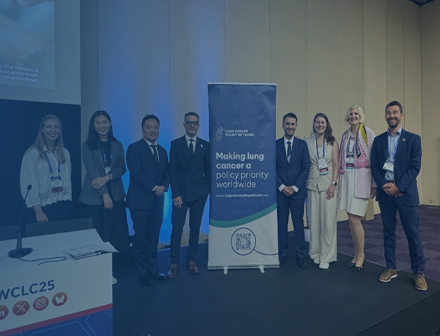The Lung Cancer Policy Network has published a new report detailing the importance of establishing high-quality patient navigation for lung cancer – the leading cause of cancer-related deaths.
The report, Patient navigation for lung cancer: an essential component of care, draws insights from Network members and 14 expert interviewees, as well as on the personal experiences of two navigators. It explores how health system leaders and decision-makers should develop formal patient navigation programmes where they do not exist, and provides recommendations about how to optimise those that do. These recommendations can be tailored to other health systems and countries.
The role of a patient navigator is to guide people with a particular condition through the health system, helping address unmet needs, mitigate barriers to timely diagnosis and treatment, and promote holistic, person-centred care.
However, for lung cancer, the potential of patient navigation to transform outcomes and deliver equitable access to best-practice care is yet to be fully realised. Further research is needed so health systems can optimise patient navigation to reduce costs, create efficiency and ensure that people receive high-quality, multidisciplinary care.
Recent news
Blog

Insights from WCLC 2025
At the World Conference on Lung Cancer in Barcelona, the Network hosted a very well-attended panel discussion focusing on the latest developments in lung cancer policy.
Case study

The screening programme for lung cancer in the Canadian province of British Columbia
We explore how a regional screening programme has been established throughout British Columbia.
News

Event to address lung cancer screening implementation in Central and Eastern Europe
On 16 September, the Network and the Croatian National Lung Cancer Screening Program will be hosting an in-person event.
